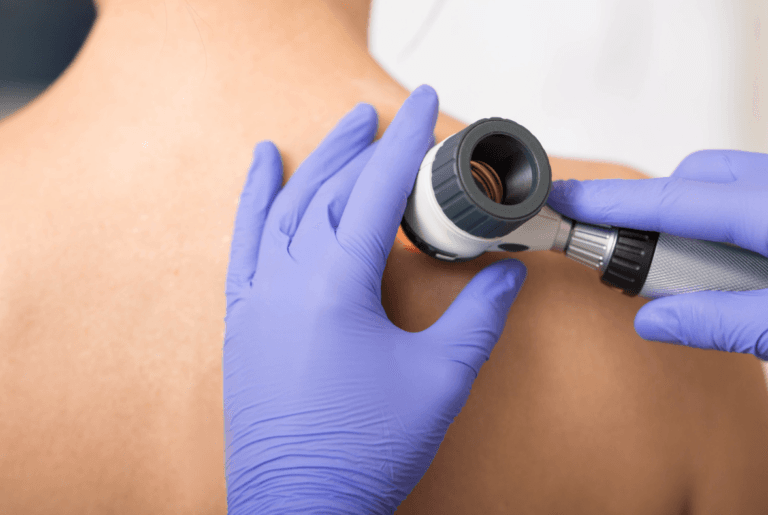
If you have testicles, then testicular cancer is something you need to take seriously, even if you’re young. While cancer might only feel like something to worry about when you’re older, testicular cancer is one of the most common types of cancer diagnosed in men aged 30 to 39 in the US.
Here, we explain what it is and how to check for testicular cancer yourself at home.
What is testicular cancer?
Cancer is the growth and spread of abnormal cells in the body. Your cells usually follow a lifecycle – They serve their function, then when they reach a certain age or a certain amount of damage, they terminate themselves while new cells are produced to take their place.
But sometimes a cell’s DNA is altered, and it doesn’t terminate when it should. It continues to live, and it multiplies and spreads to form masses of cancerous cells called tumors. Cancerous tumors can damage your tissues and affect how your body works.
Testicular cancer is when abnormal cells emerge and multiply to form cancerous tumors in one or both of your testicles. There are different types of testicular cancer that depend on which cells cancer starts in. Around 95% of testicular cancers begin in germ cells, the cells that produce sperm, and this is called germ cell testicular cancer.
How to check for testicular cancer?
Testicular cancer can be fatal, especially if it’s left untreated, but it’s good to know that it’s one of the most treatable forms of cancer. If treated early enough, around 95% of men who have testicular cancer live for at least five years, many for longer. Early identification is crucial, and luckily checking for the signs of testicular cancer is something you can do yourself at home.
How to perform testicular cancer check yourself
Testicular cancer can cause lumps to form on your testicles. It can also make your testicles change in texture and feel firmer, as well as make them painful to touch. You’re checking for these testicular cancer symptoms when you examine your testicles.
Step 1: Get into a warm shower. This isn’t strictly necessary, but if your scrotum is relaxed, it’ll make the check easier. Plus, a warm shower is a great place to relax and be naked.
Step 2: Gently hold one of your testicles and roll it carefully between your thumb and fingers. You’re checking for any unusual lumps, firmness, changes in texture, or pain.
Step 3: Repeat on your other testicle.
Checking your testicles for signs of testicular cancer is as simple as that. You should aim to do so around once a month. It also doesn’t hurt to do it more often. If you notice anything different or unusual, don’t panic. However, you should make an appointment to see your doctor right away.
What are the 5 warning signs of testicular cancer?
Testicular cancer can cause a range of symptoms, but the five most common warning signs of testicular cancer are:
- A lump, swelling, or enlargement in your testicle(s) that doesn’t cause any pain
- A feeling of increased firmness in your testicle(s)
- A feeling of heaviness in your scrotum
- A dull ache or a sharp pain in your testicle(s) or scrotum, which can come and go
- A difference in appearance between your two testicles
Testicular cancer treatments
If you see a doctor, and they confirm that you do have testicular cancer, usually by a mixture of examination, blood tests, and medical imaging, then you’ll have three main treatment options:
- Radiotherapy
- Chemotherapy
- Surgery to remove part or all of your affected testicle(s)
Which of these treatments or combination of treatments is best for you will depend on the type of testicular cancer you have, how advanced it is, and your medical history. Your treatment plan will be decided upon by the doctor who treats you.
Testicular cancer usually responds well to treatment, and survival rates for testicular cancer are amongst the highest for cancers. However, treatments can have side effects. Your testicles produce sperm and the majority of testosterone in your body. Cancer treatments can disrupt this. This can result in problems with fertility and sex, including erectile dysfunction. Talk to your doctor if you have side effects or if you’re worried about them. You can also seek support from the organizations listed below.
What is the survival rate of testicular cancer?
Testicular cancer is one of the most treatable forms of cancer. Survival rates will vary and depend on your genetics, your condition, the type of testicular cancer you have, and how you respond to treatment. But typically in the US 95% of men live for at least five years.
What happens after being diagnosed with testicular cancer?
If you’re diagnosed with testicular cancer, you have a range of options to treat it, including chemotherapy, radiation therapy, and an orchiectomy (removal of part or all of your affected testicle). You’ll also be given information about psychological and financial support. If treatment for your cancer is successful, you’ll have regular check-ups with your doctor to make sure it hasn’t returned.
Where to find support
Getting medical treatment is only part of living with and getting over testicular cancer. Cancer is big, and you deserve all the support you need. You might want to talk to a mental health professional or other men in the same situation as you, or you might need financial and legal advice. There is a range of organizations you can turn to for help, including:
Movember – a movement dedicated to improving men’s health, particularly mental health and health issues regarding prostate cancer and testicular cancer.
Testicular Cancer Society – A nonprofit raising awareness, promoting self-examination, and helping survivors and caregivers navigate and unite via a community.
Remember, you are not alone.
Sources
Medical Disclaimer
NowPatient has taken all reasonable steps to ensure that all material is factually accurate, complete, and current. However, the knowledge and experience of a qualified healthcare professional should always be sought after instead of using the information on this page. Before taking any drug, you should always speak to your doctor or another qualified healthcare provider.
The information provided here about medications is subject to change and is not meant to include all uses, precautions, warnings, directions, drug interactions, allergic reactions, or negative effects. The absence of warnings or other information for a particular medication does not imply that the medication or medication combination is appropriate for all patients or for all possible purposes.








